The European Parliament Strasbourg Hemicycle © Wikicommons / Diliff
We live in an era of threats and counter-threats. By urging European countries not to join the North Atlantic Treaty Organisation, Vladimir Putin, Russia’s seemingly homicidal and very odd president, has unwittingly proved to be a recruiting sergeant for the organisation. After all, Ukraine is fighting the Russians single-handedly and alone because, since it isn’t part of NATO, there is no-one to help it as Putin bombs schools, hospitals, historic buildings, memorials and civilian areas. One Russian strike, aimed at a television mast, came very close to destroying the Babyn Yar Holocaust Memorial in Kyiv, where more than 33,000 Jews were murdered by Nazi forces during the Second World War. Sadly, the Nazis were aided by Ukrainian sympathisers. However, no-one expected a return to the sorts of barbarity Hitler unleashed. Sadly, Putin is following in Hitler’s footsteps. The Ukraiunian author Oksana Zabuzhko addressed the European Parliament to mark International Women’s Day. She praised her fellow Ukrainian women for taking up arms to resist Russia’s aggression, but also had this to say about Vladimir Putin: “Many lives could have been saved if the EU and the US had woken up eight years ago when he invaded Crimea. A new Hitler was ready to pick up where the previous one left off.”
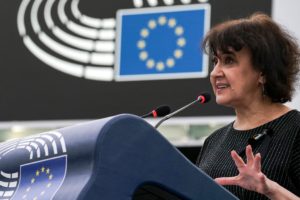
Were Ukraine a NATO member, Putin would find himself up against the United States, France, Germany, the UK and others. Now Finland and Sweden, both traditionally neutral countries, have inquired about joining the alliance, which has infuriated the aggressive and expansionist-minded man in the Kremlin. He has warned of “serious military and political repercussions” if they join. Putin is said to want cast iron guarantees that Ukraine will never be allowed to join NATO, but his ruthless, relentless bombing and shelling campaign suggest that membership would be a very good idea.
In some ways, Putin has a point, although its relevance has been seriously undermined by his vicious attack on Ukraine. It’s true that after the Soviet Union collapsed, a number of its former members signed up for NATO membership, when it might have been wiser to refuse them membership. East Germany became part of NATO automatically upon re-unification with the rest of Germany. Others are the Czech Republic, Hungary, Poland, Bulgaria, Estonia, Latvia, Lithuania, Romania, Slovakia, Slovenia, Albania, Croatia, Montenegro, and North Macedonia. Understandably, perhaps, Putin has disliked this expansion intensely because it brings American military hardware and its inherent threat closer to Russia’s doorstep. It’s arguable that applications for membership should have been declined in favour of a separate defence body perhaps being formed as a buffer between Russian and Western interests. That would have been a sensible course, but the West was, perhaps, over-confident and a bit too gung-ho. After all, who could have anticipated war?
The North Atlantic Treaty, signed in 1949, was intended to preserve the peace and protect Western Europe (specifically NOT Eastern Europe) from Russian ambitions back in Stalin’s time. Its original members were Belgium, Canada, Denmark, France, Iceland, Italy, Luxembourg, the Netherlands, Norway, Portugal, the United Kingdom and the United States.
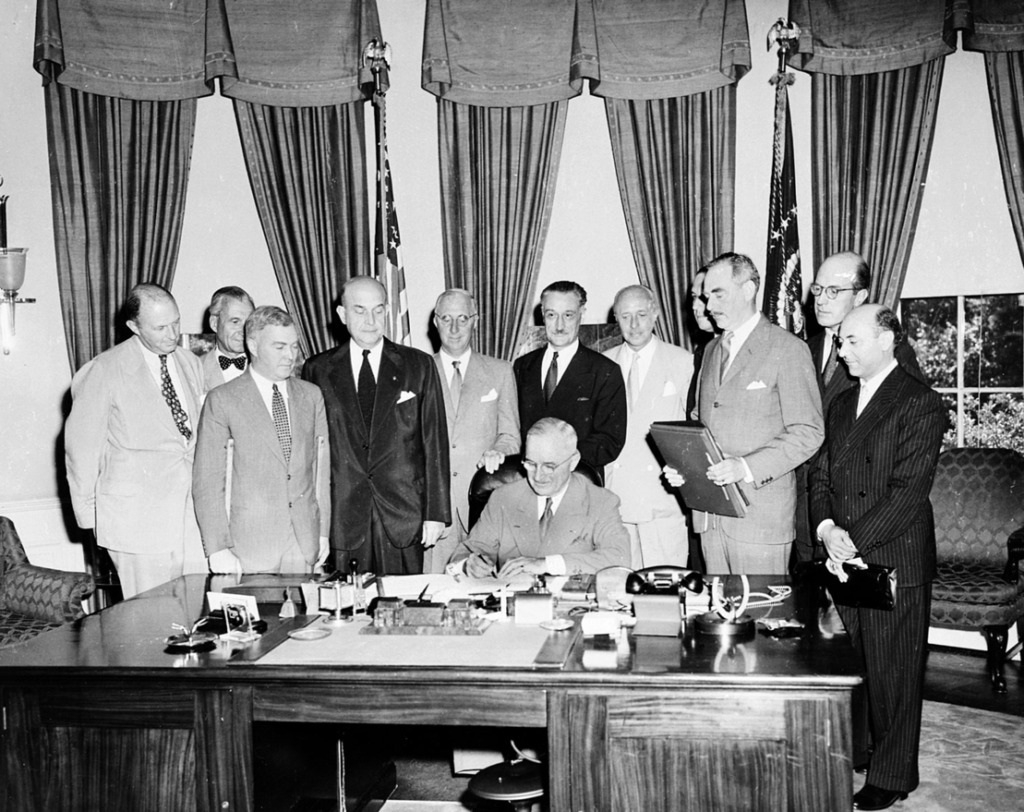
An increasingly confident Russia, committed to Communism under “Uncle Joe” Stalin, worried the capitalist West, causing it to form a caucus of countries committed to resisting the Red Army, should the need ever arise. Did NATO really need to admit Bulgaria, Romania, Lithuania, or Poland? How did their membership help to fulfil NATO’s original goal of defending, say, Belgium, France, Portugal or Spain? Putin’s uneasiness at the close proximity of potential enemies is easily understandable, which means that his motives for war are clear, if not the brutality with which he has prosecuted it. It is clearly a war and a very brutal one right inside Europe, but you’re not allowed to use words like “war” or “invasion” in Russia: it’s a peacekeeping mission to remove the “Nazis and bandits” running Ukraine, according to Putin. I don’t know if Putin really believes that or if it’s simply propaganda. When I’ve been to Ukraine I have seen neither Nazis nor bandits; it seemed a friendly country, although its people clearly disliked and feared Putin.
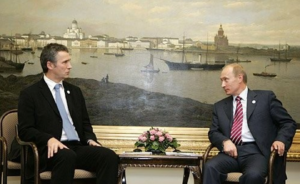
Putin is a strange man with a paranoid fear, it has been claimed, of breathing in the COVID-19 virus and thus becoming another victim of the pandemic. That is why we sometimes see him sitting at a long table, far from those he’s talking to. In the light of this obsession about breathing in germs and viruses, perhaps we should call him “Vlad the Inhaler”. NATO cannot get involved, nor can it impose a ‘no-fly’ zone, although it has fighter jets flying reconnaissance missions just beyond Ukraine’s border.
“We made clear that Russia would pay a very high price for renewed aggression against Ukraine,” said Jens Stoltenberg, NATO’s Secretary General after a meeting of NATO foreign ministers. That price is being paid in economic pain, not bombs or missiles. “This is President Putin’s war,” Stoltenberg said, “One he has chosen. Planned. And is waging against a peaceful country.” He then went on to clarify why the West cannot get involved. “NATO is a defensive Alliance. Our core task is to keep our thirty nations safe. We are not part of this conflict. And we have a responsibility to ensure it does not escalate and spread beyond Ukraine.”
HERE’S THIRTY SHILLINGS ON THE DRUM
That was one of the street cries of British recruiting sergeants during the Napoleonic wars, as they sought to attract new recruits: 30 shillings on a drum head, which offered new recruits one shiny new shilling (12 pence in the monetary units of the time, 5 pence in today’s money or €0.06, probably enough for a beer and some bread back then). Back in those days of desperate poverty, the prospect of pay (however modest) and food was attraction enough. Now Putin is simply saying “sign up for me or I’ll bomb you”. It’s a convincing argument, if not very subtle, reminiscent of the persuasive methods of gangsters down the ages. It seems inevitable that other countries will now be keen to seek the protection of NATO, the need for which Putin has so ably demonstrated. Sweden and Finland are just the first. So far, it has stopped short of full membership. “In response to Russia’s aggression,” said Stoltenberg, “we have decided to strengthen our coordination and information sharing with Finland and Sweden. Both countries are now taking part in all NATO consultations about the crisis.”

Clearly, this is not the sort of outcome Putin desired, but he has to learn, it would seem, that he cannot just threaten people (or nations) into submission. If that were not so, whatever sort of Europe emerged would be unrecognisable and much more dangerous. Putin doesn’t like the EU either, a point of view he appears to share with British Prime Minister Boris Johnson and his somewhat xenophobic cabinet. I don’t know if Putin fears butter mountains or animal welfare restrictions on meat or some other instance of EU law. Perhaps he is simply offended by the idea of separate nations getting together to share their trading rules and facilitate easier trade amongst themselves without asking him first.
There are not many countries that could apply, realistically, to join NATO. Greece and Turkey joined long ago, although Austria could still apply, even if fiercely neutral Switzerland never will, and Serbia seems an unlikely candidate, at least at present. However, there are three countries that have expressed a desire to join the club: Bosnia-Herzegovina, Georgia and, of course, Ukraine. The most recent new member is the Republic of North Macedonia, which became part of the Alliance in March 2020.
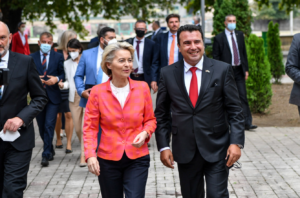
Georgia is a country of some 3.7-million people, bordered to the west by the Black Sea and to the south by Turkey, Armenia and Azerbaijan. To its north and east is Russia. It was inevitably swallowed up by the Soviet Union in 1922 as one of its 15 republics, having previously been annexed by the Czarist Russian empire in the 19th century. It gained its independence in the 1980s and proceeded to annoy Moscow by taking a pro-western view of the world. In fact, sovereignty came in 1989 and full independence in 1990. Georgia is quite a complex place, having three separate ethnic enclaves: Abkhazia in the north-west, Ajaria in the south-west and South Ossetia in the north. Georgia is the place where the Argonauts searched for the golden fleece on the fertile plain of the Kolkhida, or Colchis, as they would have called it. There’s no sign of golden fleeces these days, so no Argonauts either, although many Georgians are afraid that Russia may come knocking one day.
The Argonauts may be the stuff of legend, rather than history, but Georgia has certainly seen some torrid times. In the medieval period, Arab raiding parties swarmed across parts of what had been the Byzantine Empire and Sasanid Persia, arriving in Georgia in 642-643. After conquering Armenia, they came back in force in 652. When Iberian authorities stopped paying the tax levied on non-Muslim states, known as a Jizya, the Arab forces returned and began a systematic conquest of eastern Georgia. There was the usual medieval toing-and-froing after that, with Sergi Banukis-dze, ruler of Egrisi, even inviting Arab forces to help him fight the Byzantines. They succeeded in occupying the capital city of Tsikhegoji but got no further and so withdrew. Much Medieval history is like that, with enemies briefly becoming friends and friends briefly becoming enemies. Even the famous Spanish hero Rodrigo Díaz, known to the world as the Christian warrior El Cid, fought against Christian Barcelona on behalf of the Islamic rulers of Zaragoza for a time, under the banner of the Banu Hud, an Arab dynasty. He is said to have ravaged the kingdom of Aragon, stolen its many riches and taken its Christian citizens captive, presumably to become slaves. With his retinue of some 7,000 soldiers, he was one of the age’s most unpredictable but effective fighters. After 5 years, El Cid switched back to helping Christian kings against Muslim forces. Never trust anyone waving a sword around, however religious.

Let’s take a look at Bosnia and Herzegovina next. According to the British government, the place attracts some 9,000 UK citizens as tourists every year. The biggest threat they face there seems to come from unexploded land mines, especially in the mountains and rural areas. You can obtain maps of the places where the danger is greatest, but floods and landslides have moved some of the mines, so you could still be caught out. There is also the threat of attacks by bandits using small arms, but a shot from a 9mm or .38 calibre World War 2 pistol is just as deadly as a 7.62 round from a Kalashnikov AK47. Kalashnikovs are now also produced in the NATO calibre of 5.56, too, but a smaller entry hole won’t help you if you’re hit. For the geographically-minded, the capital of Bosnia and Herzegovina is Sarajevo while important regional cities include Mostar and Banja Luka. It looks like an attractive country from the photographs, but I have never been there to see for myself. Between 1353 and 1391, under King Ban Stephen Kotromanić, Bosnia expanded to include the principality of Hum, now known as Herzegovina, also acquiring a large part of the Dalmatian coast. Hungary was the greatest power in the region, controlling Croatia but not Bosnia at the time. A militaristic Serbia discovered, as did Hungary, that Bosnian terrain was virtually impenetrable, while its disputative landowning nobles made it too much trouble to bother trying to win. It developed its own version of Christianity, too, only agreeing to come under the authority of Rome just before Turkey took it over and turned it Muslim.
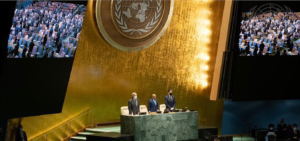
The other aspiring would-be NATO member, of course, is Ukraine itself. As we know, however, that process has been somewhat derailed by Russian aggression, for which Russia seems to be fast running out of friends: Egypt, Saudi Arabia and the United Arab Emirates, along with 138 other countries, voted in favour of a United Nations General Assembly resolution demanding that Russia halts its invasion of Ukraine and withdraws all its troops. Don’t expect Putin to take any notice, of course. In any case, it’s hard to tell if those breaking ranks are seriously swayed by humanitarianism and conviction or by self-interest. Take the UK, for instance, where Prime Minister Boris Johnson has suggested there be no slackening of the asylum rules for Ukrainian refugees. The EU countries are, by and large, letting people in, the UK less so. One British Conservative MP even posted on his website that Britain should not open its doors (and its hearts?) to Ukrainians fleeing terror because the country has ‘enough foreigners already’, a disturbingly xenophobic viewpoint. The post was taken down soon afterwards, although we must assume that the MP’s opinion remains the same. Meanwhile, Russia has shelled groups (including families) seeking to flee Ukraine. Putin has indicated that they can only go to Russia or Belarus, which doesn’t sound like a very promising option: “come and live with the people who murdered your neighbours.”
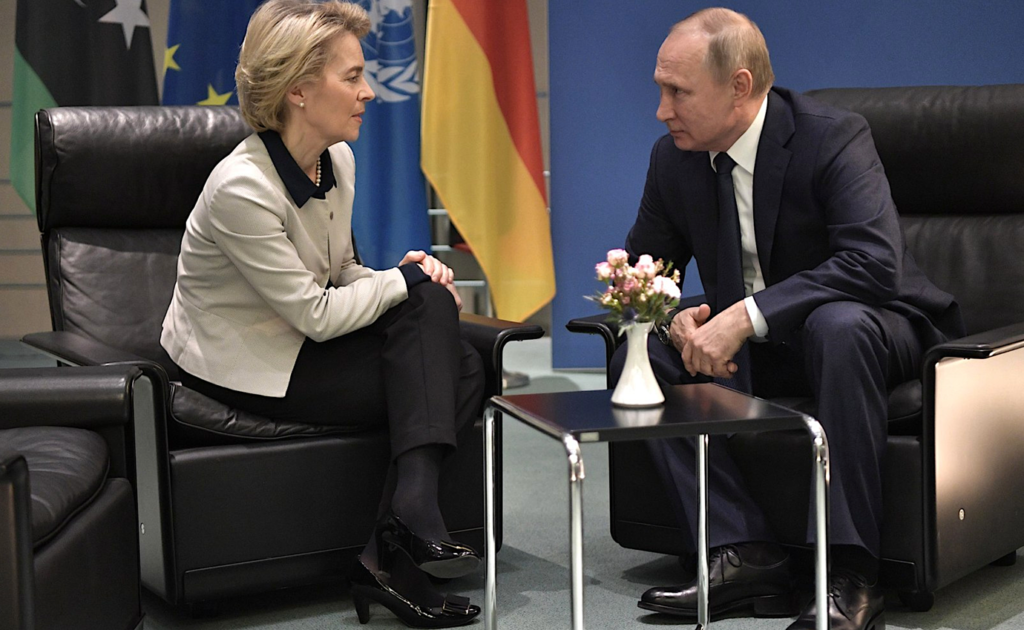
CUTTING OFF ITS BRIDGE TO SHORE
Now Putin has stepped up his attempts to silence dissent and anti-war protest in Russia. “The Kremlin is wiping out all options for dissent to ensure that brave anti-war protesters do not return to the streets,” said Human Rights Watch (HRW). Russia has enacted laws that criminalize independent war reporting and anti-war protests, with penalties of up to 15 years in prison for offenders. The laws also criminalise any attempts to support sanctions imposed from abroad. “These new laws are part of Russia’s ruthless effort to suppress all dissent and make sure the population does not have access to any information that contradicts the Kremlin’s narrative about the invasion of Ukraine,” says HRW’s Hugh Williamson. According to HRW, Karim Khan, the Prosecutor of the International Criminal Court in The Hague, has sent a team of investigators to look into possible war crimes. “Any side that targets, directly targets, civilians or civilian objects is committing a crime under the Rome Statute and under international humanitarian law,” said Khan. Putin clearly doesn’t care, intent only on denouncing Ukraine, which he claims is ruled by “Nazis and bandits”. Looking at Putin’s record, the Nazi label (perhaps even the ‘bandit’ label), would seem to fit him better.
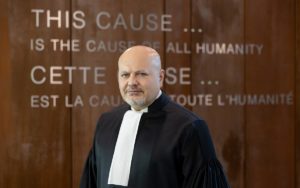
Russia has also distanced itself from the Organised Crime and Corruption Reporting Project (OCCRP), under an obscure Russian law regularly used to attack anyone critical of the country or its leadership. The OCCRP has never been operational in Russia, being registered in the United States, and has not employed Russian citizens under contract since September 2021. Now, however, Russia has effectively criminalised the OCCRP’s operations, and its staff face arrest if they visit Russia while any Russian citizen who reposts an OCCRP press release risks imprisonment. As the OCCRP says on its website: “This bullying tactic was embarked on in a desperate last effort to control the flow of information reaching Russians.” The OCCRP pledges that the action will not stop their reporting (although it will undoubtedly make it more difficult and dangerous) and furthermore says it will redouble its efforts, “focusing more, not less, attention on the actions of the Russian government.” It promises to go on reporting on the ostentatious shows of wealth of the Kremlin-backing oligarchs who robbed the Russian people to gain their fortunes.
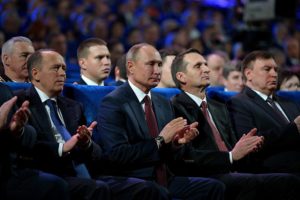
It certainly needs to, especially while Putin denies his country is engaged in ‘war’. Apparently, it’s just a “special operation”. A number of Putin’s allies, who have grown incredibly wealthy under him, continue to flaunt their ill-gotten gains. That support is not surprising: who wants to kill the ‘goose that lays golden eggs’? Take Alisher Usmanov, for instance, whose extremely opulent yacht is in a Hamburg shipyard for a $600-million refit.

Germany seems unsure if can confiscate it, as these luxury possessions are often owned on paper by mysterious, hard-to-trace companies with costly lawyers. Hamburg claims it has been seized, however, so we must assume that its two on-board heliports will be out of use for a while. Germany also claimed it had seized Usmanov’s private jet.

A luxury (and very expensive) yacht owned by Rosneft boss Igor Sechin was seized by French authorities just as it was about to leave a port on the French Riviera. Other wealthy Putin sympathisers have also been hit by targeted sanctions, such as Kremlin spokesperson Dmitry Peskov, who is accused of peddling pro-Putin propaganda. Then there’s Nikolai Tokarev, chief executive of the huge Rosneft energy company; he’s been targeted, too. Billionaire brothers Boris and Arkady Rotenberg and some of their family have been targeted, as has Russian politician Igor Shuvalov, head of the State Development Corporation.

Financier Yevgeny Prigozhin has been hit, too, and not for the first time. He was targeted before for trying to interfere in the US elections and has recently been putting out misinformation about Russia’s invasion of Ukraine.
LIES AND YET MORE LIES
In 1918 US Senator Hiram Warren Johnson is purported to have said: ‘The first casualty when war comes is truth’. However, this was not recorded. In 1928, Arthur Ponsonby wrote: ‘When war is declared, truth is the first casualty’. But it seems that Samuel Johnson may have got there before him with a quote in The Idler from 1758: “Among the calamities of war may be jointly numbered the diminution of the love of truth, by the falsehoods which interest dictates and credulity encourages.” Certainly Vladimir Putin encourages lies and falsehoods, it seems, and even employs people to think them up. But the credit should, perhaps, go to the Ancient Greek dramatist Aeschylus in the 5th century BCE, although he only wrote that “God is not averse to deceit in a just cause.” But Russia is not the only country currently stretching the truth well beyond breaking point.
Perhaps most distressingly, Russia has been taking clips from actors preparing for a television drama whose production predates the war. The footage, which has gone viral, shows actors having fake blood applied or getting up from positions where it had been claimed they were dead, all in a bid to “prove” that the war isn’t happening. Other similar footage is being used to claim that the COVID pandemic is fake.
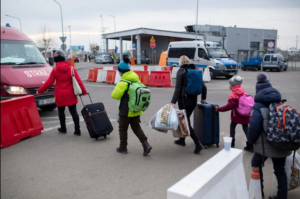
I wonder if the perpetrators have tried showing it to the relatives of those who have died of Covid? Russia claims it proves the invasion of Ukraine is “fake news”, but it’s the footage that is false, just like the footage supposedly proving that the pandemic is fake. Putin, as we know, will do anything to emerge as “the good guy” from this war when he is very clearly not. Britain has also been exhibiting some economy with the truth, however. It claimed that it is targeting certain Russian individuals of interest, including Usmanov and Shuvalov (it may be, although there are many more it could have named), but it has also claimed that it had stationed border control operatives in Calais to ‘help’ Ukrainian refugees. This has been shown to be untrue. Britain is being extremely stingy with its visas for Ukrainians escaping the bombing and shelling. There had been, by the 8 March, 9,000 applications for visas from Ukrainians and from UK citizens with Ukrainian dependents.
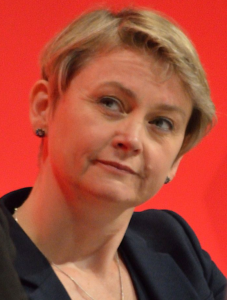
Only 300 had been granted. That’s just over 3%. One elderly Ukrainian woman, Valentyna Klymova, had travelled from the war zone to join her daughter in the UK but was turned away by UK border officials. It led to a question being asked in the House of Commons by Labour’s Shadow Home Secretary, Yvette Cooper, which received an ambiguous one-word reply from Home Secretary Priti Patel. Some of those turned away at Calais were told that their paperwork was not in order and that they should apply again in Paris. That’s a long way to walk or to hitchhike with no guarantee of a positive outcome. Again, the impression is conveyed that the British government doesn’t really want to open its doors to Ukrainian refugees. Ukraine itself has been criticised for discriminating against non-nationals trying to escape the war zone. Indian students paid to board a bus to the Polish border, but it dropped them some 25 kilometres short, Ukrainian staff telling them unsympathetically “to walk” the rest of the way. They were also allegedly refused service at a petrol station when they stopped for food. If true, it is a sad reflection on the Ukrainians involved.
This image made by the Ukrainian nonviolent social movement Vidsich was used as one of the logo of « Do not buy Russian goods! Campaign » in 2013-2014 in Ukraine
This contrasts somewhat woefully with the EU’s overall response to the crisis. As a European Movement website declared: “I am proud of the way that the European Union has rallied around Ukraine.” This is yet another example (and there have been many) of Britain taking a very different approach to world events than the organisation it chose to leave. Johnson pegged his future on getting out of the EU as a way of winning popular support among mainly middle-aged and middle-class Conservative voters, as well as former Labour voters who had fallen for the many lies he had told about the EU because those lies sold newspapers. Russian-made goods are now being shunned as part of the sanctions regime with many Western companies pulling out of the Russian market, among them Amazon, Adidas, Coca Cola, FIFA, Mercedes, You Tube and even Pornhub. It would be good if we could also shun Russia’s oil and gas, but officials in Moscow have gloated at how cold Europeans are going to be without it.
WE WILL ALL GO TOGETHER WHEN WE GO
So far, some two million refugees have now fled Ukraine, according to the United Nations, amid continued fighting in the country. Ukraine accused Russia of shelling an evacuation route for civilians trapped in the besieged coastal city of Mariupol in violation of a ceasefire agreement and two children were among 21 killed in an air strike on Sumy, according to the BBC. Not that this information is likely to weaken Putin’s resolve. Mercy is not one of the traits for which he is noted.
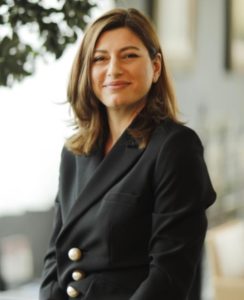
However, he continues to recruit new NATO members. In a communication to the European Movement, Sophie Katsarava, Georgia’s ambassador to the UK, described the continuing invasion as a “wake-up call”, saying that it is time to “embrace the countries who share fundamental values and show support to counter existing and potential threats and risks that might emerge in the future.” And there will be more risks; thumbing one’s nose at Putin is not something to be done lightly.
Back in 1959, at the height of the Cold War, American satirist and song-writer Tom Lehrer recorded the song ‘We will all go together when we go’ about the threat of nuclear war. I can still remember the air raid warning exercises at my school. How could I forget: the air raid siren was mounted on the school roof and could be heard over a considerable distance, especially in my classroom, which was directly underneath it. In London and elsewhere, financial institutions are taking every opportunity to hold on to the profits that Russian oligarchy and greed have provided. Once again, Lehrer hit the nail on the head:
“We will all go together when we go,
All suffused with an incandescent glow.
No-one will have the endurance
To collect on his insurance.
Lloyds of London will be loaded when they go.”
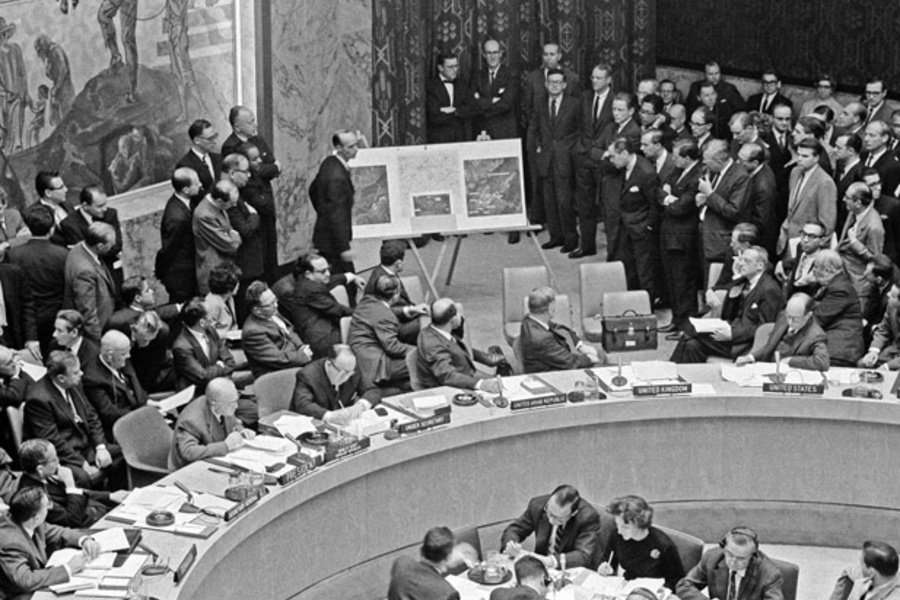
I recall those Cold War days, and not only for the ear-splitting siren just above my head. Bombs and missiles were the talk of the school playground, on-and-off, for years. It got more intense at the time of the Cuban missile crisis, although as children we couldn’t really bring ourselves to believe anyone would try to exterminate us all. Otherwise, we could not have laughed at Tom Lehrer’s songs, and we did. Like all youngsters, we knew we’d live forever. But as the writer George Bernard Shaw wrote: “Youth is a wonderful thing. What a crime to waste it on children.”
Former Socialist MEP Richard Corbett Is unhappy with the way in which British and EU policy has been diverging over the Ukraine crisis, citing on the European Movement’s web page: “The EU Withdrawal Agreement’s Political Declaration in which both the UK and EU committed to ‘establish a broad, comprehensive and balanced security partnership’.” The idea was that it: “would allow them to work together on ‘evolving threats, including serious international crime, terrorism, cyber-attacks, disinformation campaigns, hybrid threats, the erosion of the rules-based international order and the resurgence of state-based threats, wrote Corbett. “This is exactly the threat that Putin poses to Ukraine and the rest of Europe. Boris Johnson reneged on that agreement.” Corbett quotes this as: “another example, not that we needed it, of how Brexit isn’t working. It’s another example of how Brexit has weakened Britain, undermined our friends and allies, and played its part in breaking such a hard-earned peace in Europe.”
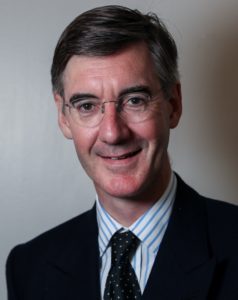
Jacob Rees-Mogg, the UK’s Minister of State for Brexit Opportunities and Government Efficiency (a long-winded title, but that’s what it says) recently declared that once all the advantages of Brexit became clear “You won’t recognise the country”. Since then, he has successfully removed from a bill on animal-related imports a proposed ban on importing fois-gras and animal fur. Luxury items, of course, of a type most British people couldn’t afford even if they wanted to, but which, it would appear, Rees-Mogg and his friends couldn’t live without. It’s small beer, of course, when compared with the horrors being visited upon the people of Ukraine day by day, but it displays a somewhat cavalier disregard for the concerns of others. He may be right; we really won’t recognise the country he is helping to create.
Meanwhile, Putin gets ever-more paranoid and aggressive, saying that the bombs and missiles won’t stop until Ukraine surrenders. By that, we must assume that Ukrainian President Volodymyr Zelensky will have to bow down before Putin and eat humble pie. He won’t, of course, which is presumably why Putin has now set a team of hired killers on his trail. If he won’t surrender, Putin will remove him by the same methods he has used in the past, during his climb up the slippery pole to the Kremlin’s top job. Many of the oligarchs who aided his progress did not escape with their fortunes but several at least escaped with their lives.
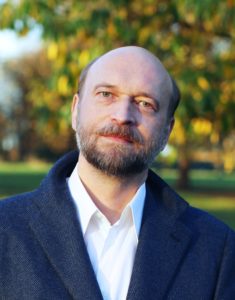
Take Sergei Pugachev, for instance, a one-time Kremlin insider who had helped guide Putin’s rise, later forced to seek protection from the UK’s counter-terrorism officers after boxes with suspicious-looking wires protruding from them were found tape under his Rolls Royce and under the car used to ferry his children to school. Pugachev had been pursued from pillar to post by Putin’s operatives, who had threatened him in Paris and in Moscow, where the local Mafia demanded $350-million (€322-million) to “guarantee his family’s safety”. He had not, perhaps, reacted wisely, but is there a sensible way to respond to death threats against your children? Perhaps not. Now Putin is doing it again, but this time to an entire country. “Give me exactly what I want, or I shall kill all your children.” What can anyone say? It’s not sensible, nor even possible, to do deals with someone who is unlikely to keep his side of any bargain. One can easily understand why some countries are getting more and more interested in joining NATO.
The war will not end anytime soon. As Ukrainian President Volodymyr Zelensky told Britain’s House of Commons in an address delivered remotely: “We will fight to the end. We will not lose. We will continue fighting for our land, whatever the cost.” Brave words, which won deserved applause from MPs, but not the offers of aid he had hoped for. Furthermore, the cost he mentioned will be high, written in the blood of Ukrainian adults and children, all of them killed on Putin’s orders. One MP suggested that Zelensky should be rewarded with a knighthood. I think he’d rather have a squadron or two of Eurofighter Typhoons or Panavia Tornados: fighter jets to sweep Ukraine’s skies clean of Russian aggressors. But he’s very unlikely to get them.

